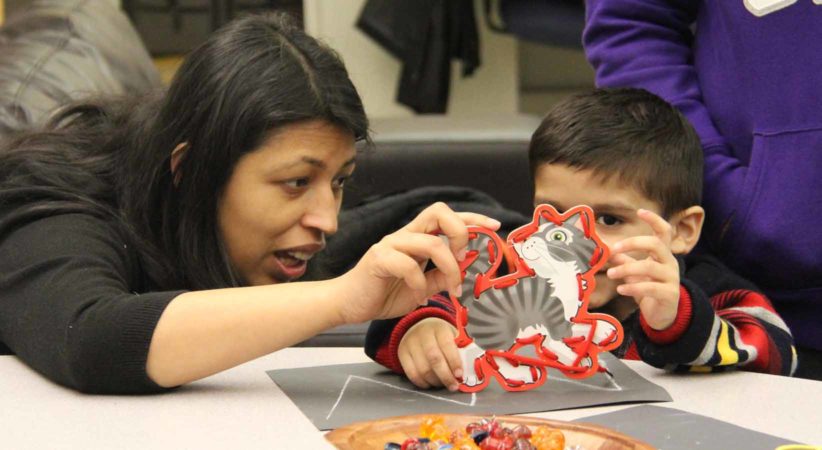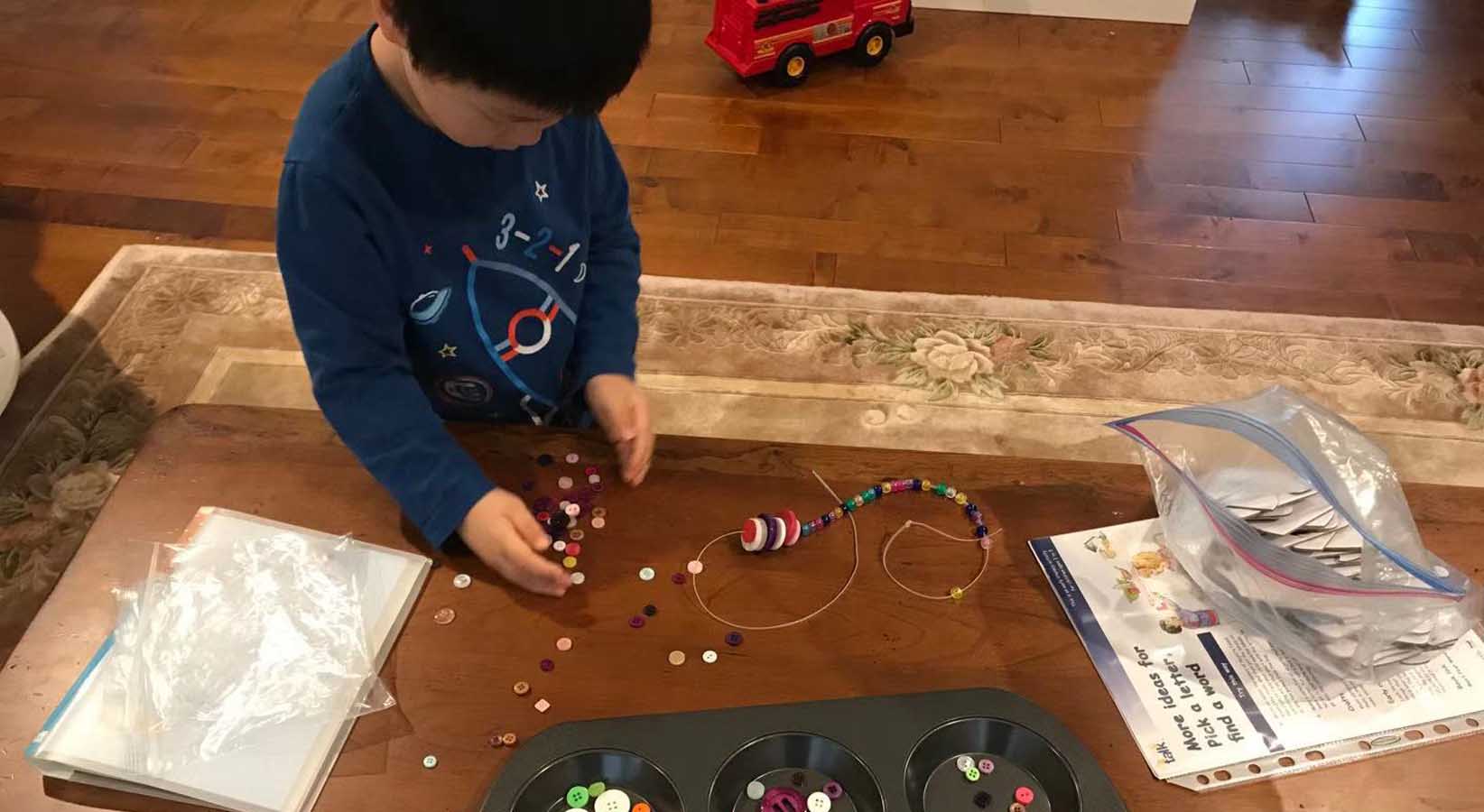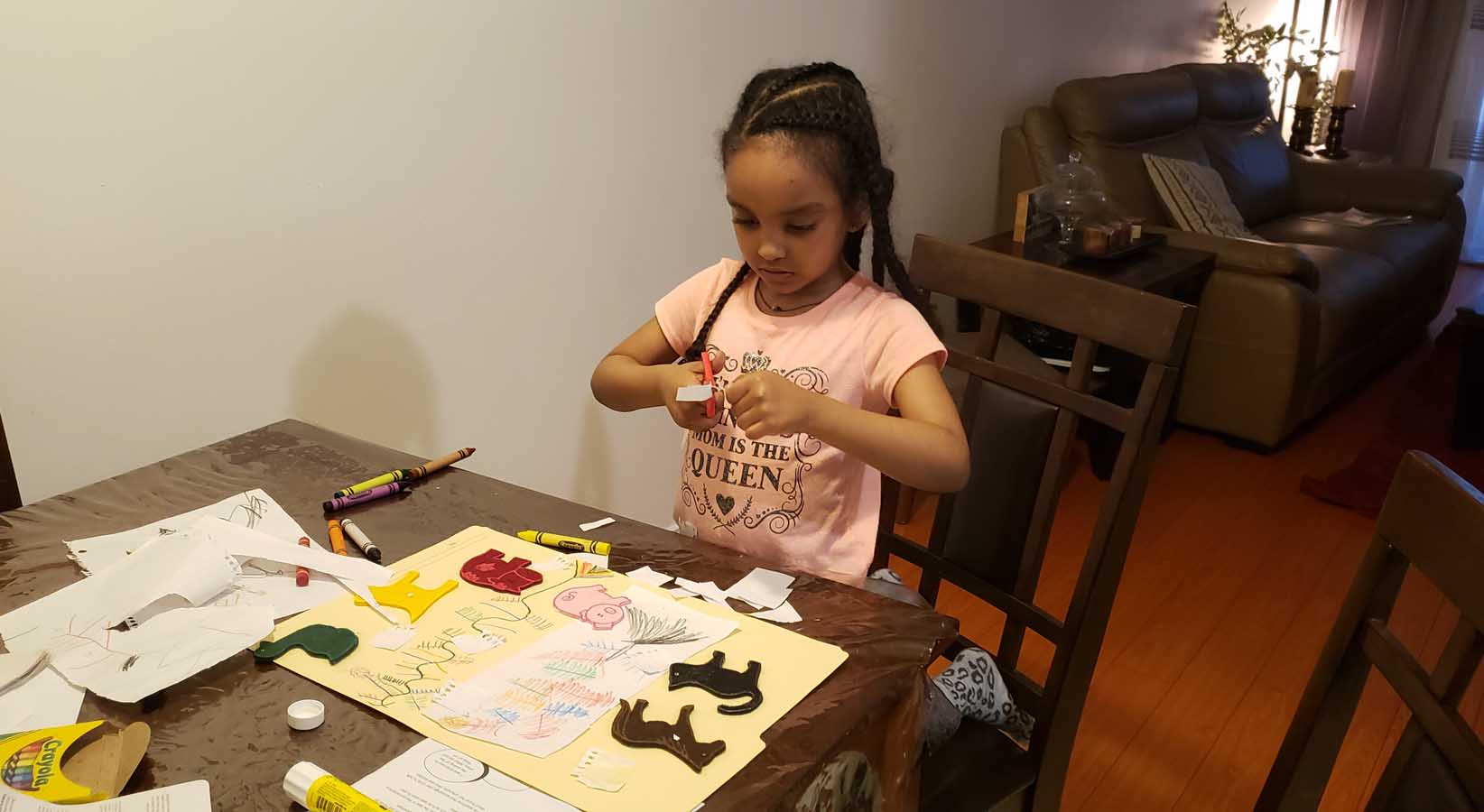
Literacy connects families new to Canada
Parents are a child’s first teacher
Parents are a child’s first teacher. That’s the core principle of a Decoda Literacy Solutions program that helps immigrant and refugee families build confidence and connections before they enter a Canadian kindergarten classroom.
“The Immigrant Parents as Literacy Supporters (IPALS) is a family literacy program designed for parents and pre-school-aged children to support their language and literacy development,” says Aliza Dhungana, IPALS program manager at Decoda Literacy Solutions. “Through interactions in English and their first language, it offers parents new strategies to support their child’s learning in fun and interactive ways, while responding to their cultural and linguistic needs.”
Connecting to children, culture and community
IPALS builds on the importance of connections: with participants’ cultural community, with family and children and with their new Canadian community.
“Our IPALS program is always a highlight of my year,” says Deanna DeVita, IPALS program facilitator at Hollyburn StrongStart in West Vancouver. “It’s a catalyst to bring families together to delve into ideas of learning through play. It creates relationships that result in long lasting connections with and in our community. We have families that continue to connect with us and go on to attend our district’s Kindergarten Connections Program and StrongStart.”
Learning through play
For families arriving from other countries, the Canadian school system can be a mystery.
“Many newcomer immigrant families come from countries where ‘play’ is not recognized as a method of learning,” says Aliza. “IPALS’ play-based philosophy is a significant paradigm shift for some cultures.”
At the North Shore Multicultural Society in North Vancouver, IPALS cultural facilitators Ting Ting Reuveny and Sara Tabatabaee run IPALS sessions in Mandarin and Farsi.
“IPALS is very important for newcomer parents,” says Sara. “They don’t know the Canadian school system and they have lots of questions. They are used to a more academic approach where you sit and learn. Now the parents understand that they can learn through play.”
Ting Ting agrees: “In Chinese culture you just sit down and read and write and memorize. Parents think teaching is only for professionals. The Canadian education system is much more relaxed and has a completely different approach. At first, they wonder how singing and playing and making crafts out of popsicle sticks is learning. Then parents learn they can be a lifelong support to their children’s learning.”
Decoda program support
Decoda provides the IPALS facilitator training, materials and support throughout the program. It also gathers reporting data and success stories for funders.
“We are involved as a partner and we support them in many ways to maintain the quality and integrity of the program,” says Aliza.
“Aliza is fantastic,” says Ting Ting. “Very helpful, very professional and very approachable – she is always there for us!”
More than 3000 families helped
Decoda supports IPALS programs held at 19 sites in BC communities and school districts with the funding support of Immigration Refugees and Citizenship Canada (IRCC) and other sources.
The program runs in several Lower Mainland school districts, as well as Kelowna, Nanaimo and Victoria, in languages based on the local population’s needs, including Arabic, Cantonese, Farsi, Karen, Korean, Mandarin, Punjabi, Somali, Spanish and Tigirnya.
Since 2008, IPALS has helped more than 3000 families from 46 countries and 35 different language groups.
Virtual IPALS silver lining
Like many in-person programs, last year IPALS was adapted to provide virtual sessions so that families could participate safely from home. Decoda produced the IPALS Virtual Sessions Guide to help facilitators lead live online sessions. Resource materials and books were available for families to pick up and bring home to prepare for online sessions.
Virtual sessions meant more behind the scenes preparation for facilitators, but the results were significant.
Deanna noticed increased registration from the start and excellent attendance in the virtual sessions.
“Families were willing and excited,” she says. “We made meaningful connections and it was well attended. This became our ‘silver lining of Covid’.”
“Some have been so happy that they could stay home and participate in virtual sessions,” says Sara. “One mom didn’t like to go out and be in large groups. And with the virtual sessions, she didn’t want to be on camera due to her condition, but she had an older child who could help facilitate the session on camera.”
Jackie Howard District Principal in Surrey says, “Being able to continue this program in a pandemic has been important to families who are feeling isolated. By partnering with Welcome Centre and First Steps again, we were able to reach families that have not yet accessed schools or StrongStart programs or are otherwise not connected to community resources.”
Working together for literacy
“IPALS helps to build trust, connections, networks, and bonds with other newcomers and existing Canadians,” says Aliza. “The reciprocal learning and building on the strengths of newcomer families and their cultures helps to foster welcoming communities and strengthens a great sense of belonging. This belonging results in increased participation of families in other services and programs within the community, such as the library, health services, immigrant support services, transportation services and childcare services.”
It’s easy to connect the dots on the benefits of IPALS:
- Children develop language and literacy abilities that will help them adapt to their community and gain skills and confidence to begin school.
- Adults learn about the Canadian education system, school participation norms and how to support developmentally appropriate ways of learning in the early years. “It’s also a good way for new families to connect and meet other parents – since they’re new they often don’t have many friends,” says Sara.
- Families feel welcomed into their neighbourhood schools, build social networks with each other and improve their language skills.
- Teachers and facilitators enhance their understanding of working with newcomer immigrant children and families.
Lin Dong’s success story
In West Vancouver, parent Lin Dong shares how IPALS has helped her family:
“I got up this morning and found the kids make a mess of the room. The floor was covered with toys and buttons, etc. I was about to rage but realized how happy they were. They were wholly absorbed in the play with glittering eyes. I was inspired and came up with a game right away.
‘Let’s race who picks the most buttons,’ I said to Henry. Within seconds, we finished cleaning up, and it’s time to count. In the past, Henry didn’t sort before counting. Now he will place the buttons in lines and counted them faster and more accurately. Then we continued with the rest toys on the floor. We picked them up and counted them. Henry’s older sister joined us because she saw how much fun we had.
What a morning. It turned a frustrating situation into a family fun activity. It strengthens our relationship in a healthy and positive way – this is what the [IPALS] program brought to me – if we’re equipped with more ideas, tools and methods, parenting is more productive.”

Simret’s success story
Simret came from Sudan and faced barriers of language and isolation. After participating in IPALS in Burnaby with her children, she says, “We learned how to overcome our barriers, where to get support services and how to help my daughter prepare for kindergarten next year. I am grateful for the program in our own language, which made us comfortable understanding and asking questions.
I learned how to connect and interact with my children, listen to their feelings, and how they learn best through play. I am surprised to see how much change my daughter showed after just a few sessions. My children are happier, engaged in activities and ask for very little or no TV time.
Participating in the IPALS program benefitted my whole family. Now, I feel that my daughter is ready for school and I am ready to be her teacher at home.”

IPALS history
The original Parents as Literacy Supporters (PALS) program was developed in 2000 by Fiona Morrison and Dr. Jim Anderson. The program was adapted and developed as a bilingual program to help immigrant families in 2008.
The future of IPALS
This fall, depending on public health orders around the COVID-19 pandemic, IPALS sessions will continue as a hybrid model of onsite and virtual programming. Whether in person or online, the IPALS program has proven a significant benefit to families new to Canada.
“Through IPALS, we see a noticeable shift in parents’ perspective from seeing themselves only as caregivers of their children to their children’s first teachers,” says Aliza. “They are excited to realize how much they have already taught their children and to imagine how much more they can teach them.”
For information about the program, visit our website or contact program manager Aliza Dhungana at adhungana@decoda.ca.
Related Blog Posts
Every gift has the power to impact lives
Decoda’s director of fund development builds relationships to support literacy and BC.
Using The Westcoast Reader in the classroom
Learn how to use The Westcoast Reader newspaper to support your learners.
A message from Sandra Lee, Executive Director
A Mother’s Day message with stories about mothers and Decoda’s future plans.
